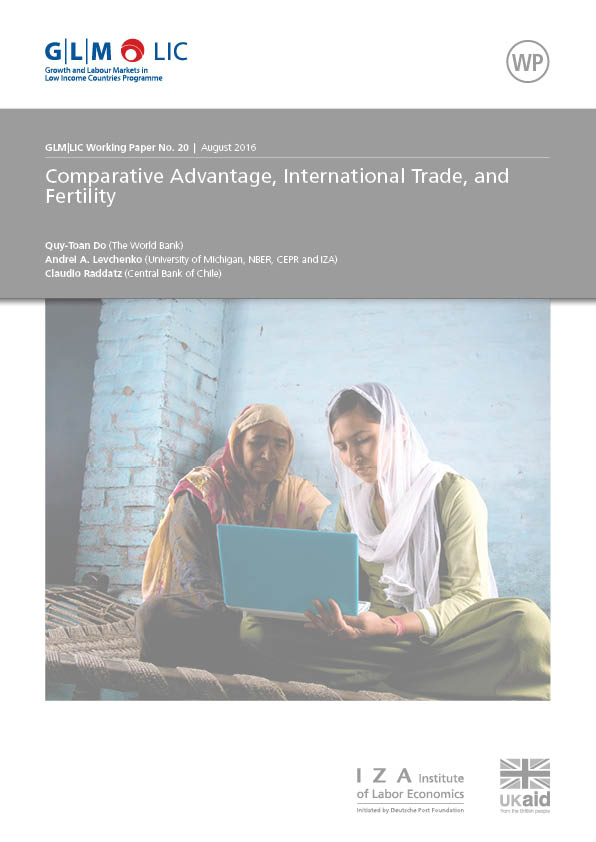We analyze theoretically and empirically the impact of comparative advantage in international trade on fertility. We build a model in which industries differ in the extent to which they use female relative to male labor, and countries are characterized by Ricardian comparative advantage in either female-labor or male-labor intensive goods. The main prediction of the model is that countries with comparative advantage in female-labor intensive goods are characterized by lower fertility. This is because female wages, and therefore the opportunity cost of children are higher in those countries. We demonstrate empirically that countries with comparative advantage in industries employing primarily women exhibit lower fertility. We use a geography-based instrument for trade patterns to isolate the causal effect of comparative advantage on fertility.

Comparative Advantage, International Trade, and Fertility
- Quy-Toan Do
- Andrei Levchenko
- Claudio Raddatz